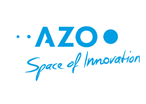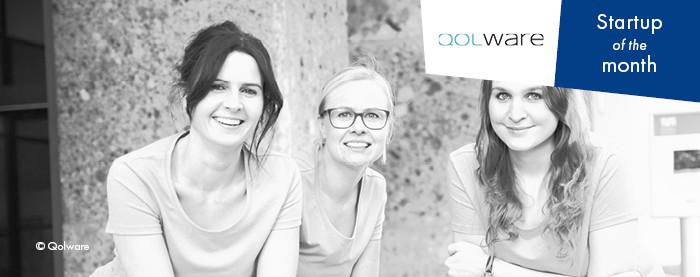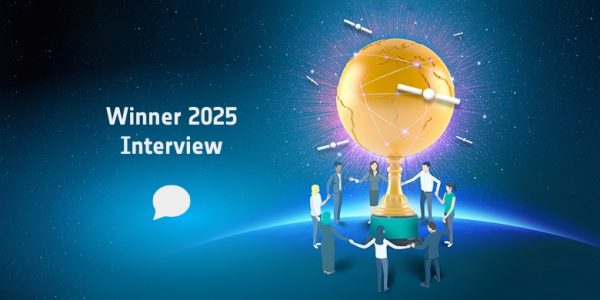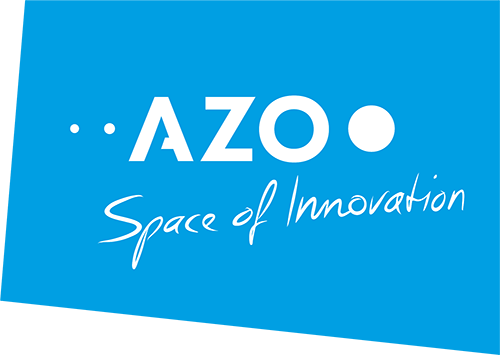Qolware provides applications for mobile and wearable devices to detect health emergency situations, changes in everyday behaviour and assess risk of decline. Their solution gives chronic patients and seniors individual and proactive support to live more independently and get back in charge of their health. Qolware’s product Lola, a digital health and emergency assistant, is available in the Google Play Store.
ESA BIC Bavaria Manager Cornelia Gebath (CG) interviews Cristina Soaz (CS), Managing Director at Qolware.
CG: Please give us a sneak peek of your product and the team behind it.
CS: The LOLA app is the first smartwatch-based solution developed for continous, real-time health monitoring and emergency response that increases seniors’ and patients’ security in their daily life and gives them more independence. LOLA’s built-in advanced analytics for real-time event detection and predictive modelling enables automatic detection of falls, loss of consciousness and unusual patterns in vital measurements, as well as an early identification of risk factors associated with health decline. With LOLA, users can also trigger an emergency call straight from their smatwatch to pre-defined contacts, such as family members or an emergency call center, while enabling to share their location, contextual information and vital records. This allows emergency dispatchers to have better insights about the seriousness and cause of the emergency, facilitating more accurate diagnosis and rapid response to critical situations. The LOLA app is reliable and scalable thanks to state-of-the-art consumer devices, yet affordable for most and discrete enough not to be experienced as stigmatizing by users, in contrast to most of emergency response systems available in the market right now.
CG: What has been your company’s biggest challenge so far?
CS: We are developing an application with a special focus on seniors and chronic patient as end-users. We know from our experience, that most of them are not aware about current technological solutions and their positive impact on health status, wellbeing and mobility. Once they explored them, they are delighted and ready to start using them right away. Therefore, the challenge for us is to inform and raise awareness about smart healthcare technologies such as ours and to encourage people to use smartwatches and smartphones for their own safety and independence.
CG: Can you explain the three main ingredients of your recipe for success?
CS: An interdisciplinary, international and passionate team composed of experienced people, following one common goal – namely to improve people’s quality of life and to motive seniors and chronic patients for a more active lifestyle is one ingredient of our success. Moreover, hard work – running a startup means a lot of work and requires a lot of commitment that we have – and strong partners that continuously support us in product validation and rollout are important.
CG: What do you expect from ESA BIC Bavaria and how do you think the initiative and its network will help you to kick-start your business case?
CS: Participating in the ESA BIC Bavaria provides us an opportunity to fast track our smart solution towards market launch. In November 2017, we launched the first version of the app – the LOLA Lite for private consumers which allowed us to test the users’ acceptance, to make product improvements based on the direct consumer feedback and to initiate new strategic cooperations. The next version of the LOLA app, including built-in advance analytics for fall detection, will be presented in the first half of 2018.
The connection to a great network provides relevant partners that support us in strengthening our business idea, developing our marketing strategy and increasing our visibility on the German and international market.
CG: How can you benefit from the DLR support?
CS: Right now, our goal is to develop further functionalities, such as outdoor and indoor localisation that could provide especially dementia patients a situation-aware assistance, support in autonomous outdoor mobility and empower their participation in everyday life activities. Currently, the LOLA app is able to locate the person in need of help through the GPS and cellular network (Assisted GPS) thanks to the GPS and SIM card modules integrated in regular smartwatches. Next step for us would be to develop a logic for a seamless outdoor & indoor navigation using a WIFI/GPS navigation system – where the DRL could support us with its expertise in that special field.
CG: Let’s reach for the stars – what is going to happen in Qolware’s future?
CS: Qolware’s future – we will definitely keep developing and improving LOLA App to meet customers needs and support them much better in everyday tasks. Our goal is also to close strategic partnerships with hardware providers, health insurers and pharma companies. In the upcoming months, we will present LOLA App with build-in advance analytics for fall detection on two core events – the Care Fair in Hannover (06-08 March 2018, Hall 21 Booth 037) and the Care Plus Fair in Stuttgart (15-17 May 2018). In the long run, we want to bring our smart software to international markets.
Did you enjoy this interview with the outstanding startup? Interested people can get into contact with Qolware via mail. Stay tuned for upcoming interviews with ESA BIC Bavaria startups on our AZO Blog.




